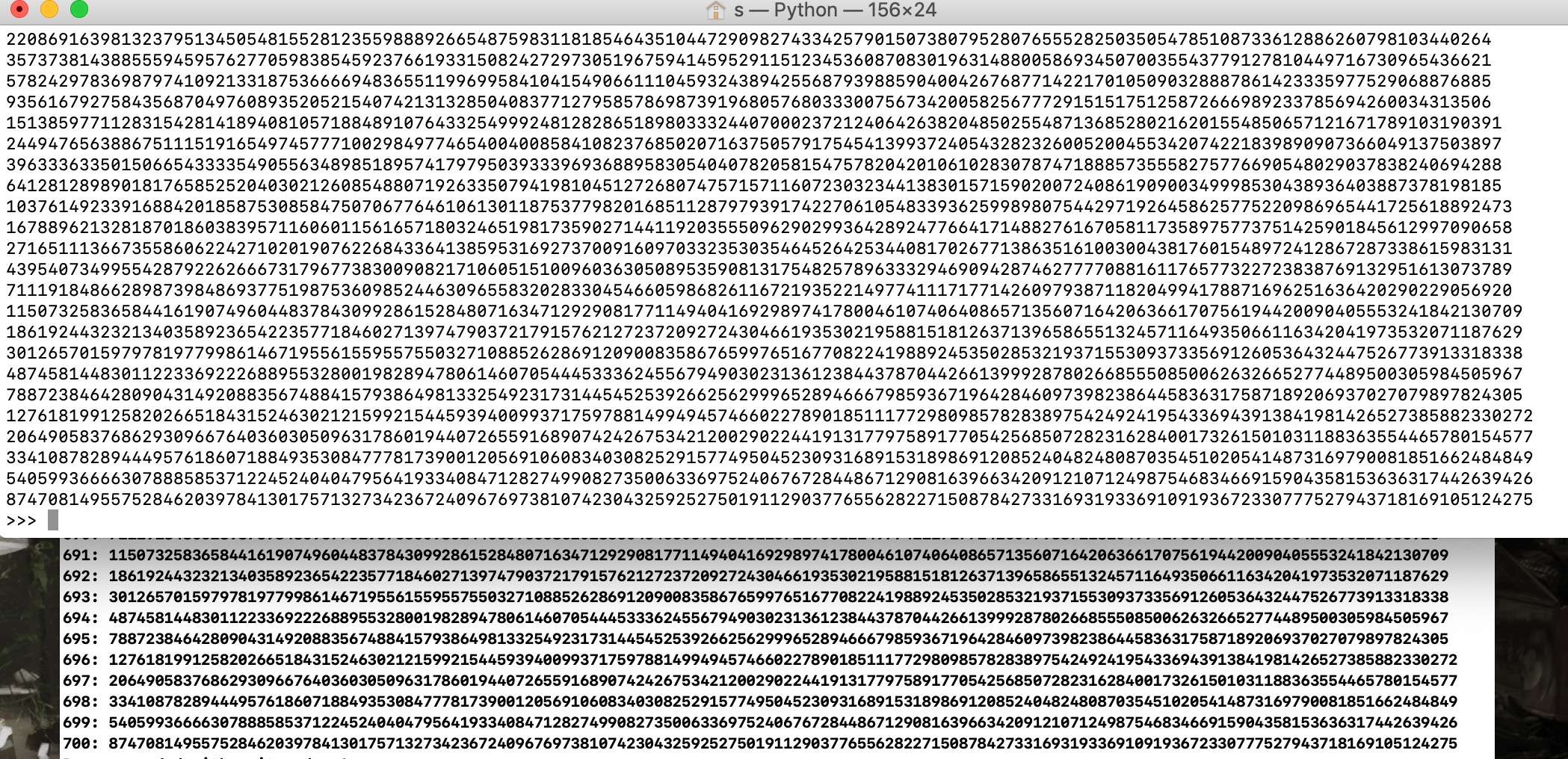1
2
3
4
5
6
7
8
9
10
11
12
13
14
15
16
17
18
19
20
21
22
23
24
25
26
27
28
29
30
31
32
33
34
35
36
37
38
39
40
41
42
43
44
45
46
47
48
49
50
51
52
53
54
55
56
57
58
59
60
61
62
63
64
65
66
67
68
69
70
71
72
73
74
75
76
77
78
79
80
81
| #include<bits/stdc++.h>
using namespace std;
struct big0{
int o,h,l;
big0(){}
big0(int rhs):o(0),h(0),l(rhs){}
big0(int h,int l):o(0),h(h),l(l){}
operator int(){return int(l);}
big0 operator!=(const big0&rhs){return h!=rhs.h||l!=rhs.l;}
big0 operator+(const big0&rhs){
big0 ret=0;
ret.l=l+rhs.l;
ret.h=h+rhs.h+ret.l/1000;
ret.o=o+rhs.o+ret.h/1000;
ret.l%=1000;
ret.h%=1000;
return ret;
}
void show(int flag){
printf("%03d%03d",h,l);
}
void show(){
if(h!=0){
printf("%d%03d",h,l);
}
else printf("%d",l);
}
};
template<class T>
struct big{
T o,h,l;
big(){}
big(int rhs):o(0),h(0),l(rhs){}
big(T h,T l):o(0),h(h),l(l){}
operator int(){return int(l);}
big operator!=(big rhs){return h!=rhs.h||l!=rhs.l;}
big operator+(const big rhs){
big ret=0;
ret.l=l+rhs.l;
ret.h=h+rhs.h+T(0,ret.l.o);
ret.o=o+rhs.o+T(0,ret.h.o);
ret.l.o=0;
ret.h.o=0;
return ret;
}
void show(int flag){
h.show(1);
l.show(1);
}
void show(){
if(h!=T(0)){
h.show();
l.show(1);
}
else l.show();
}
};
typedef big<big<big<big<big0>>>> big4;
typedef big<big<big<big<big4>>>> big8;
big8 a,b,c;
int main(){
a=1;
b=1;
for(int i=3;i<=700;i++){
c=a+b;
a=b;
b=c;
printf("%3d: ",i);
c.show();
cout<<endl;
}
}
|

